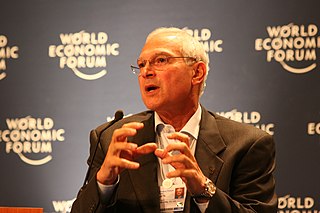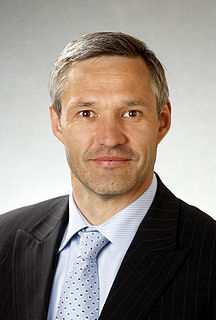A Quote by Taavet Hinrikus
The growth of FinTech has been driven by adoption across age groups, but the demand from the millennial generation to innovate and think about financial services differently has been a catalyst for change.
Related Quotes
Some Muslim lobby groups have argued that Christian groups already have public funding for their schools and services so they should too. In response, there are now Hindu and Sikh organisations demanding their own concessions lest they feel left out. The demand to wear the headscarf one day spurs the demand to wear the crucifix the next.
Mobile phone technology can help to bring financial services to the 80 percent of African women who do not have a bank account and bolster the growth of the world's poorest continent. It's not just about empowering women, it's about economic growth. Unless we can make access to finance easier for women in their businesses, we will be missing out on a significant portion of growth within our economies
The lack of manpower and infrastructural capacity in our Intermediate and Long-term Care sectors are problems that have been with us for the past 10 years. The demand for rehabilitation services will only increase with a rapidly ageing population. I hope the Ministry will share its roadmap to meet the rising demand for rehabilitation services.
I have been an organizer and then activist and a legislator, all of that. But then there's this big gap after I advanced in Congress and ended up as the ranking member of financial services committee. It took me into the financial services issues and Wall Street and Dodd Frank. And it took me away from the things that I did years ago.































